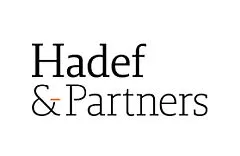- within Government and Public Sector topic(s)
- in United States
- in United States
- within Intellectual Property and Environment topic(s)
In Brief:
- The latest amendments to the UAE AML/CTF legislative framework,
introduced on 29 July 2024 concern the workings of two committees:
- the National Committee for Combating Money Laundering and the Financing of Terrorism and Illegal Organisations;
- and the Supreme Committee for Supervising the National Strategy to Combat Money Laundering and Terrorism Financing.
- These Committees build on existing AML committees, clarify their respective mandates, and enhance their powers and functions.
- The significance of these amendments lies in their timing and their proactive oversight focus. Introduced not long after the UAE's removal from the Financial Action Task Force 'grey list', the amendments make it clear that the UAE is continuing with its efforts to strengthen the country's AML/CTF agenda and reinforce a robust and adaptable AML/CTF legal framework.
On 29 July 2024, the Federal Decree-Law No. (7) of 2024 Amending Certain Provisions of Federal Decree Law-No. (20) of 2018 Concerning Countering Money Laundering Crimes and Combating the Financing of Terrorism and Financing of Unlawful Organizations ("Decree-Law No. (7) of 2024") introduced the latest amendments to the UAE Anti Money Laundering ("AML") / Counter Terrorism Financing ("CTF") legislative framework ("amendments").
The amendments predominantly concern the establishment of two AML/CTF committees:
- the National Committee for Combating Money Laundering and the Financing of Terrorism and Illegal Organisations ("the National Committee"), and
- the Supreme Committee for Supervising the National Strategy to Combat Money Laundering and Terrorism Financing ("the Supreme Committee").
(collectively, "the Committees").
Upon closer examination, these Committees build on existing AML committees and further enhance their powers and functions.
The National Committee
The National Committee, previously established by the AML Law and formed by a decision of the Minister of Finance, was originally mandated to develop and implement the national framework for AML/CFT controls. Following the amendments, the National Committee will be formed by a Cabinet decision, based on the proposal of the Minister of Finance.
The Supreme Committee
The Higher Committee Overseeing the National Strategy on Anti-Money Laundering and Counter Terrorism Financing, previously established as a temporary body to supervise the UAE's efforts during the earlier FATF Mutual Evaluation process, has now become a permanent body, known as the Supreme Committee. It will be organised under the Presidential Court and formed by Cabinet decision.
The Supreme Committee will continue to supervise the National Strategy for Combatting Money Laundering and the Financing of Terrorism ("National Strategy"). The new 2024-2027 National Strategy was approved by the UAE Cabinet of Ministers on 2 September 2024. It aims to, among other things, strengthen the UAE's legal and regulatory framework, align with international standards, and improve the effectiveness of financial oversight mechanisms, as part of the UAE's ongoing commitment to maintain a robust financial system and comply with global best practices in combating financial crime.
In summary, the amendments seek to build on the existing AML/CTF
framework by re-organising the UAE's existing AML committees,
clarifying their respective mandates, and enhancing their powers
and functions. Article 3 of the Federal Decree-Law No. (7) of 2024
expressly allows for continuity of these committees and confirms
that any previous decisions regarding such committees that do not
contradict the amendments remain in force.
The significance of the amendments lies in their timing and their
proactive oversight focus. Introduced not long after the UAE's
removal from the Financial Action Task Force 'grey list',
the Federal Decree-Law No. (7) of 2024 makes it clear that the UAE
is continuing with its commitment to:
- strengthen the country's AML/CTF efforts;
- reinforce a robust and adaptable AML/CTF legal framework; and
- mobilise at the highest levels to ensure appropriate oversight and continued effectiveness of its AML/CTF agenda.
Decisions are now awaited concerning the formation of the National Committee, the appointment of the Secretary General, the regulation and organisational structure of the General Secretariat and the operation of the Supreme Committee.
The content of this article is intended to provide a general guide to the subject matter. Specialist advice should be sought about your specific circumstances.


